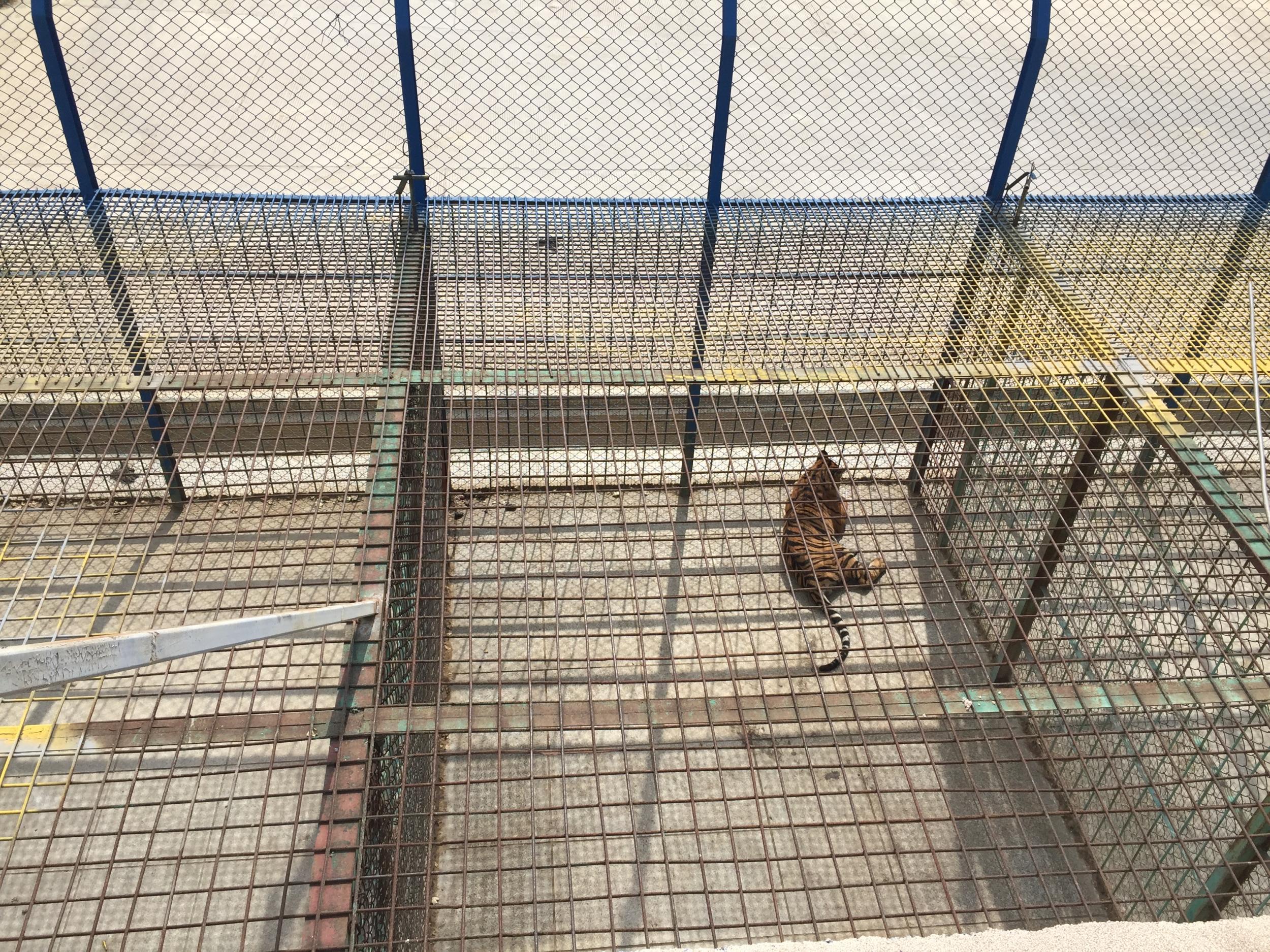Lions and tigers suffer painful deformities in industrial breeding schemes for traditional Chinese ‘medicine’
‘These big cats are exploited for greed and money – for medicine that’s never been proven to have any curative properties whatsoever’
Lions and tigers are being born with painful deformities caused by inbreeding at industrial-style centres that harvest their body parts for a growing trade in traditional Asian “medicine”, investigators have revealed.
Big cats have been found with abnormalities to their faces, feet and legs, and may also suffer sight, hearing, breathing and chewing problems, a major report says.
The animals are among the thousands cooped up in tiny enclosures likened to factory farms, to be killed for their body parts, which are boiled or chopped up to make tiger bone wine and remedies for conditions from arthritis to meningitis, the document exposes.
The first ever global study of the Chinese “medicine” supply chain lays bare how faith in unproven treatments is directly causing captive big cats to suffer on a huge scale and threatening their existence in the wild.
Increasingly wealthy populations in China and Vietnam are driving up demand for “traditional medicine” products, the report says – and as the wild tiger is driven to extinction, so lions, jaguar and leopards are also being killed to supplement supplies.
People believe remedies made from big cats can treat conditions such as arthritis and rheumatism, promote strength and increase sexual vigour.
A majority of those questioned in both countries prefer the animals to come from the wild rather than farmed, believing the products are more effective, according to World Animal Protection (WAP), which produced the report.
The investigators also found “harrowing evidence” that inbreeding and breeding at speed leaves some animals with painful health problems including deformities, and they may also suffer sight, hearing, breathing and chewing problems.
China has up to 6,000 tigers awaiting slaughter, South Africa up to 8,000 lions, and Thailand 1,500 tigers. Laos and Vietnam both also farm lions and tigers, the charity says.
The big cats are either snatched from their mothers in the wild or are born at breeding facilities – an increasing trend as demand for tiger products has risen in recent years.
In China, investigators found long rows of battery-farm-style cells housing hundreds of tigers and lions and providing only minimal food and water. Many animals were emaciated, with their ribs and backbones highly visible, the witnesses said.
The largest centre had more than 1,000 big cats in “camped, dismal, concrete enclosures and cages – harsh captive environments far removed from their wild natural homes”. Many paced back and forth from stress.
The report also highlights how “medicines” threaten big cats’ existence, saying: “It is likely that wild lions are illegally trafficked by organised crime syndicates into South Africa from neighbouring countries like Zimbabwe and Botswana and added to lion farm populations.”
Wild tiger populations are on the brink of extinction with fewer than 4,000 left worldwide.
Experts have long argued that “traditional medicines” have no proven medical benefits.
But surveys by WAP found:
- In Vietnam, nearly 90 per cent of consumers of such medicine believe in it, and a quarter of the population use wildlife products such as “big cat plasters”
- A similar number preferred products from animals caught in the wild
- In China, two out of five people had used drugs or health products containing big cat products
But the research also found two-thirds of Vietnamese respondents were willing to try herbal or synthetic alternatives, with half saying this depended on price.
The report, which will be launched at a major Cites meeting next month, describes patchy international and domestic laws as “inadequate”.
South Africa’s petting farms, which supply the “canned” hunting industry, are perfectly legal, and animal bones are exported within quotas.

Dr Jan Schmidt-Burbach, a wildlife adviser at WAP, said: “These big cats are exploited for greed and money – for medicine that’s never been proven to have any curative properties whatsoever. For that reason alone, it’s an unacceptable.
“But given that at each stage of their lives they suffer immensely – this makes it an absolute outrage.
“Many of these animals will only ever see the world through metal bars, they will only ever feel hard concrete beneath their paws, and they will never get to experience their most basic predatory instinct – a hunt.
“These animals are majestic apex predators – they are not playthings – nor are they medicine.”
Last year World Animal Protection found jaguars were being poached in South America to supply the trade.

Join our commenting forum
Join thought-provoking conversations, follow other Independent readers and see their replies
Comments
Bookmark popover
Removed from bookmarks